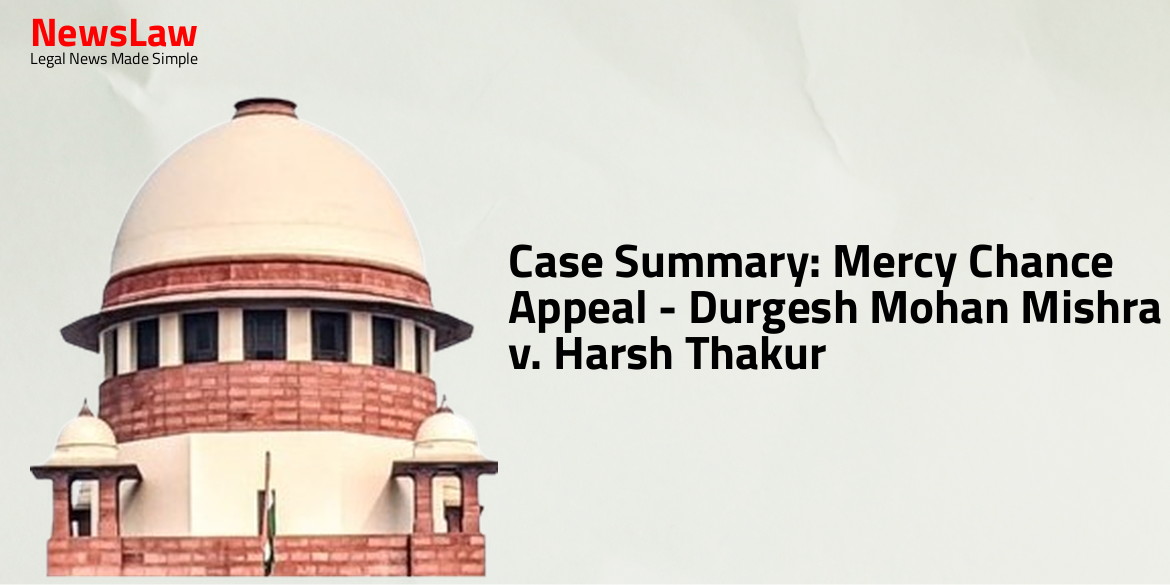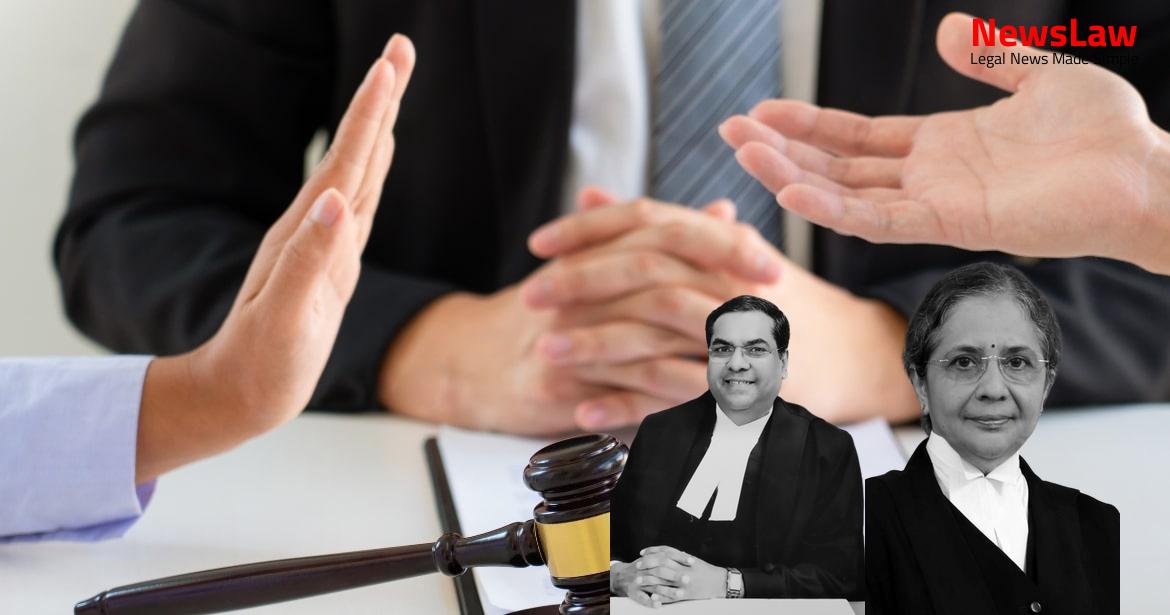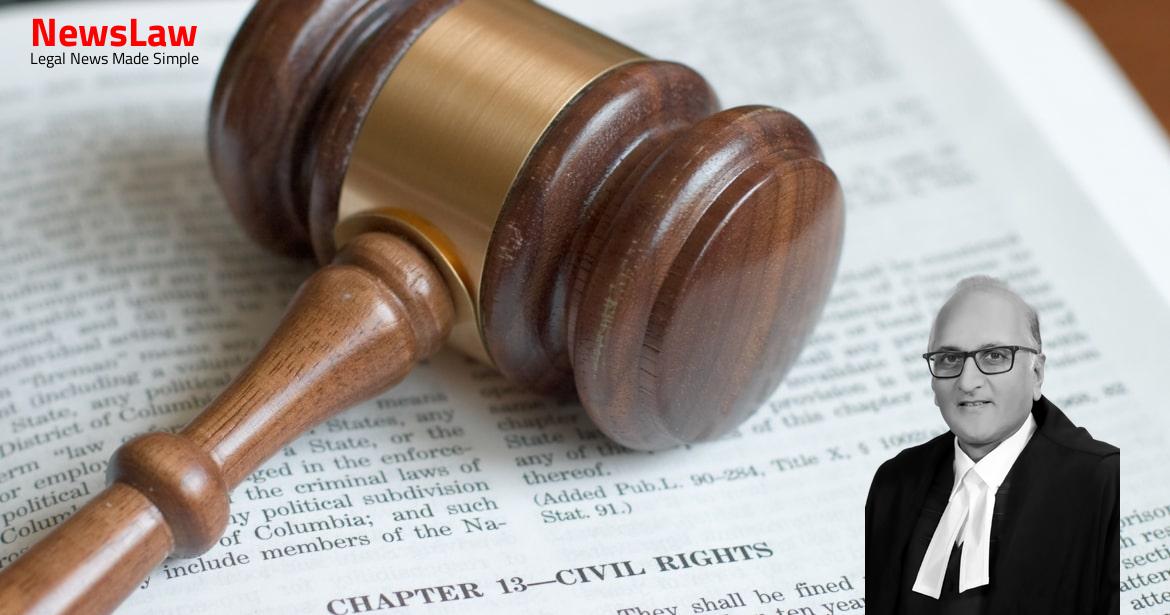In a significant legal development, the Delhi High Court recently deliberated on a mercy chance appeal filed by Durgesh Mohan Mishra against Harsh Thakur. The case revolves around the application of grace marks and regulations in education. Stay informed on the court’s decision and its impact on academic standards and student welfare.
Facts
- Petitioner, a student of the 2020-2024 batch, appeared for his third attempt of the first semester Communication Sciences paper in June 2023 and failed to pass.
- He scored 34 marks, falling short of the required 37.5 pass marks.
- Similarly, in a previous attempt, he scored 30 marks against the pass mark of 37.5 in the same paper.
- The petitioner joined the B. ASLP course in the Institute after clearing the CET in 2020 and has been studying for four years.
- Due to the University’s refusal to grant him grace marks, he is unable to progress to the sixth semester as he cannot take the fifth semester exams.
Arguments
- The petitioner, a student pursuing the B. ASLP Programme, seeks a mercy chance for an additional attempt at the Communication Sciences paper.
- The petitioner’s case is compared to another student, Harsh Thakur, who was granted an extra chance due to the COVID-19 pandemic.
- The petitioner argues for the application of grace marks in his second or third attempt as per the 2013 Regulations.
- Regulations 4 and 5 are cited by both parties to support their arguments regarding the awarding of grace marks.
- The petitioner contends that Regulation 5 should not be interpreted to only apply at the end of the course, as it would result in absurd consequences.
- Instances of other students being awarded grace marks in re-appear exams are presented to support the petitioner’s case.
- The petitioner’s plea for grace marks in his Communication Sciences paper is pivotal for his progression to the sixth semester and completion of his course.
- The petitioner emphasizes the need for fair treatment and the avoidance of discrimination in granting mercy chances or grace marks.
- Mr. Sabharwal relies on para 15 of the judgment in Maharashtra State Board of Secondary and Higher Secondary Education v. Amit.
- The petitioner’s request for a mercy chance is deemed unjustified by Mr. Sabharwal.
- The absence of the petitioner to attempt the papers due to unavoidable circumstances is not applicable in this case.
Analysis
- Regulations regarding award of grace marks apply only to candidates who have not qualified university examinations within the stipulated time
- Regulation 5 specifies the number of grace marks to be awarded at different intervals and only if it renders the candidate eligible for a degree
- Court cannot add interpretations to regulations that are not explicitly stated
- Regulation 4 allows up to 6 grace marks only for regular semester/annual examinations
- Candidate can only be granted grace marks under one clause, not multiple clauses
- Exercise of discretion in favor of a student should not be interfered by the court unless it is capricious or whimsical
- The court should not direct the exercise of similar discretion for others unless in identical circumstances
- Regulation 6 applies only under certain conditions mentioned in Regulation 5
- Regulations should not be liberally construed when it comes to granting grace marks as it dilutes academic standards
- The judgment of the High Court of Punjab and Haryana in Rahul Kapoor is distinguished from the present case.
- The Supreme Court in the decision on Maharashtra State Board of Senior Secondary and High School Education warns against excessive leniency in awarding grace marks.
- The Supreme Court emphasizes that grace marks compromise academic standards and should only be awarded in strict adherence to applicable regulations.
- The Supreme Court disapproves of the practice of awarding grace marks for post-graduate degrees in Punjab University, advocating for merit-based conferral of such degrees without the need for grace marks.
- The petitioner’s request for relief through the awarding of grace marks and granting of a mercy chance is not legally sustainable.
- The regulations applicable to Harsh Thakur’s case are different from those applicable to the petitioner.
- Due to the above reasons, the Court is unable to grant the relief sought by the petitioner.
- The petitioner cannot claim a mercy chance by comparing their case to that of Harsh Thakur.
Decision
- The facts in this case are identical to the facts in WP (C) 1506/2024.
- The pending miscellaneous applications do not survive for consideration and are disposed of accordingly.
- The relief claimed by the petitioner, Durgesh Mohan Mishra is also identical to the relief claimed by Raj Gangwani.
- Following the above judgment, this writ petition is dismissed with no orders as to costs.
Case Title: DURGESH MOHAN MISHRA Vs. UNION OF INDIA & ORS. (2024:DHC:3605)
Case Number: W.P.(C)-1508/2024



